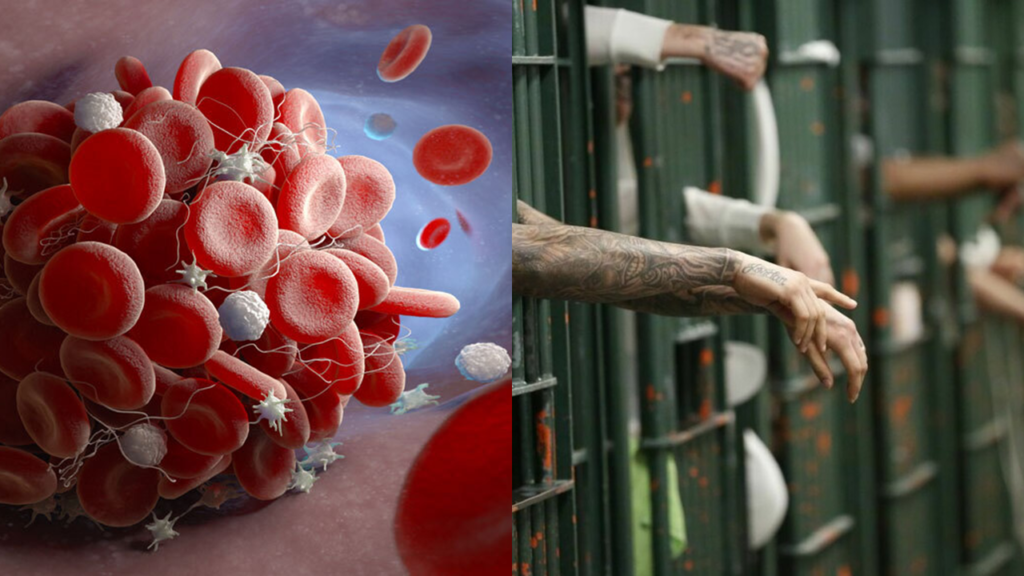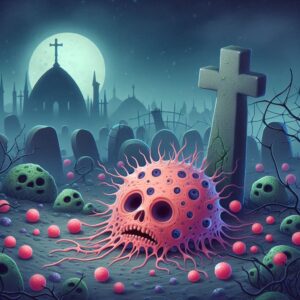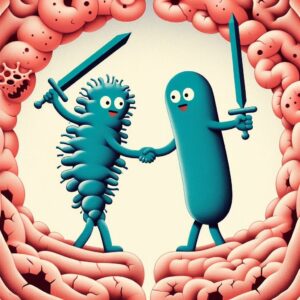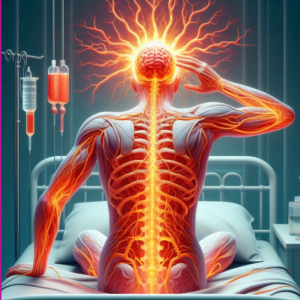I recently attended an international conference where I was intrigued to find a topic that suggested that anticoagulants (drugs that prevent clotting) have anti-viral properties. It was a direct strike against my medical understanding of how our blood coagulation system works.
All my life I believed that blood clotting mechanisms are critical components of our defense system. This is what medical books and research papers have been saying since decades. Then how is it possible that anticoagulants- can be helpful against viruses?
So, I decided to attend this session.
The presenter was a globally reputed scientist from a world class research lab.
I don’t want to name the scientist or the institute. Hence, let me call this scientist Dr John Doe.
The session seemed quite popular- I had trouble finding a place to sit. I looked around and I could see some of the best minds in the field of hematology and virology attending this session.
I was pretty excited that I will learn something awesome and new that would dramatically update my view regarding our blood clotting system.
The presentation was quite lively and vivid with data and graphs. The presenter was extremely eloquent. But as he kept progressing with his presentation I realized that there was a huge mismatch between the research data he was presenting and their interpretations.
Dr Doe’s research involved studying blood clots and how clotting would impact proliferation of viruses. His research showed that viruses proliferate when they are trapped in blood clots. When you dissolve the blood clot using an anticoagulant drug, viral proliferation is inhibited. Based on these findings, he concluded that anticoagulant drugs have antiviral properties. He further substantiated his conclusion by saying that during COVID-19, anticoagulant drugs saved lives of several patients and this maybe because of the anti-viral properties of such drugs.
If we agree to these conclusions, it would simply mean that our clotting system promotes viral growth. And this conclusion is tangentially opposite to the defensive functions our clotting system plays in our body.
But, these conclusions are actually incorrect. I was really amazed at how naïve we can be in interpreting results from a well constructed research. The research conducted was extremely well designed. But the way results were interpreted was quite absurd.
Let me explain.
One of the critical functions played by our blood’s clotting mechanism is to trap the viruses/bacteria that are swimming in the blood and causing damage. By trapping these viruses/bacteria, you localize the pathogens and restrict them from spreading across. The micro-clots that trap these pathogens attract other defense cells so that they can come and kill these pathogens. Rather than allowing these viruses/bacteria to spread, our clotting system restrict their growth and proliferation in restricted/localized traps. Clots act as prisons where criminals are isolated from the society.

When you try observe this phenomenon outside the body in a laboratory, it is obvious that viruses will flourish and grow when trapped in clot. A clot is rich and dense with cells which allows viruses to proliferate. When you dissolve this clot using an anticoagulant drug, viruses get released into the media of the test tube. In this extended playground beyond the clot, the density of cells per unit area is way lower than a clot. Obviously, density of viral proliferation will be much lower. This observation does not prove any anti-viral properties for anti-coagulant drugs. It’s actually reverse. By dissolving clots, anti-coagulant drugs disable the defensive properties of our clotting system, allowing viruses/bacteria to spread far and wide.
But, then how did anti-coagulant drugs save lives during the COVID-19 pandemic?
To understand this, you first need to understand that during COVID-19 pandemic, nobody died because of the virus itself. People died because in those unfortunate patients, body’s immune system went wild. If you use nuclear bombs to kill a terrorist who could have been simply shot with a gun, you will end up annihilating your own country. In these unfortunate patients who died due to COVID-19, their immune systems over-reacted. This is exactly why anti- coagulants became life savers during COVID-19 pandemic. Anti-coagulant drugs slightly paralyzed immune system thus taming down the extent of collateral damage that caused deaths in COVID-19 pandemic.
So, anticoagulants do not have any anti-viral properties. They suppress immune system. And this immune suppression is sometimes good as it doesn’t allow our defense forces to go wild and destroy our own body.
I would like to conclude this article by saying that please do not simply believe any conclusion given in any news article/blog/research paper. Try to understand how the conclusions were made. Sometimes, even a great scientist with best of the noble intentions can make inaccurate conclusions from high quality research.
Also, mostly such unintentional errors in interpreting is because most scientists are specialists and not generalists. And specialization generates blind-spots. In such a case, it is always better to discuss with experts from various other related disciplines to cover such blind-spots.
Please note: I have no intention to disrespect anyone. The research conducted was of really high quality. The presenter was highly qualified and extremely knowledgeable. I am way to small in comparison. But, I just don’t agree with the conclusions he drew.






There is definately a lot to find out about this subject. I like all the points you made
I am not sure the place you’re getting your information, however great topic. I must spend some time finding out much more or working out more. Thank you for fantastic information I used to be looking for this information for my mission.
I am not sure where you’re getting your info, but good topic. I needs to spend some time learning much more or understanding more. Thanks for magnificent info I was looking for this information for my mission.
Thank you I have just been searching for information approximately this topic for a while and yours is the best I have found out so far However what in regards to the bottom line Are you certain concerning the supply